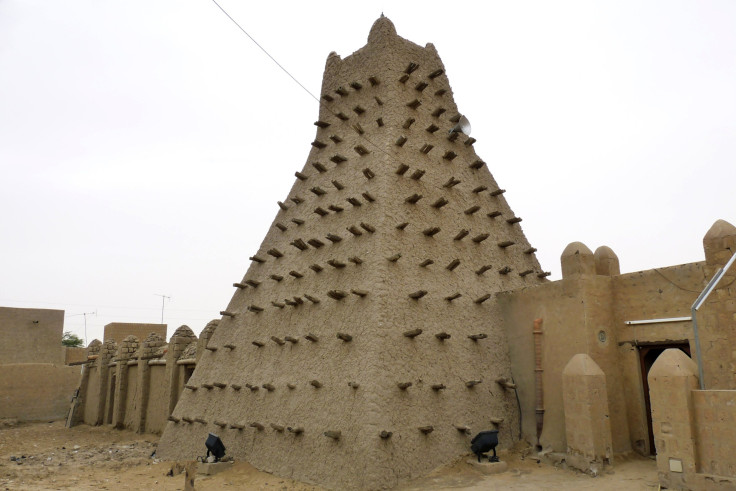Mali Conflict: Unesco Says Protecting Heritage Sites Key To Building Peace

The United Nations Educational, Scientific and Cultural Organization, or Unesco, urged both Malian and French forces involved in the Mali conflict to protect the nation’s ancient cultural sites during ongoing air raids and ground attacks.
France launched air strikes against Islamic camps and mobile forces in northern Mali last week to stop a rebel offensive and “safeguard” the nation, which was a French colony until 1960. The capital, Bamako, is still home to about 6,000 French citizens, and the landlocked West African country is France’s main source of uranium for its nuclear industry.
The conflict in Mali began in earnest at the beginning of 2012 when rebels imposed sharia law in the north, banning things like smoking and music and forcing women to wear headscarves. The hard-line Islamist groups Mujwa and Ansar Dine, backed by al-Qaida’s north Africa wing known as AQIM, moved into the ancient Malian desert town of Timbuktu last June and defaced Sufi tombs inside a 15th century mosque, calling the site blasphemous.
Timbuktu was an ancient center of learning, and Unesco immediately put it on its World Heritage In Danger list. But armed groups occupying Timbuktu destroyed more artifacts in “The City of 333 Saints” in late December. Ansar Dine leader Abou Dardar told the AFP at the time that “not a single mausoleum will remain in Timbuktu, Allah doesn’t like it. We are in the process of smashing all the hidden mausoleums in the area.”
Though the rebels have since fled three key northern cities, including Timbuktu, the presence of French troops in Mali last week prompted Irina Bokova, director-general of Unesco, once again to ask all armed forces to “make every effort to protect the cultural heritage of the country, which has already been severely damaged.”
Invoking the Hague Convention of 1954 for the Protection of Cultural Property during armed conflict, Bokova sent a letter to both Malian and French authorities urging them to respect the rules of the Convention.
“Mali’s cultural heritage is a jewel whose protection is important for the whole of humanity,” she said. “The destruction of World Heritage sites in Mali in 2012, especially the mausoleums in Timbuktu, sparked a wave of indignation across the world, helping to raise awareness of the critical situation facing the Malian people.”
Unesco has set up an emergency fund that will enable it to assess, rehabilitate and reconstruct heritage sites in Mali at a future date, and it has distributed topographic features relative to the location of sites of concern.
“The protection of cultural heritage is an essential part of all sustainable efforts to build peace and respect for human rights,” Bokova said.
The UN agency’s World Heritage List includes four sites in Mali that it says are symbolic of intercultural dialogue and the tolerant and peaceful practice of religion. Bokova said the people of Mali have “always shown great tolerance toward different religious and spiritual beliefs” and called the recent spate of wanton destruction “deplorable.”
© Copyright IBTimes 2024. All rights reserved.












